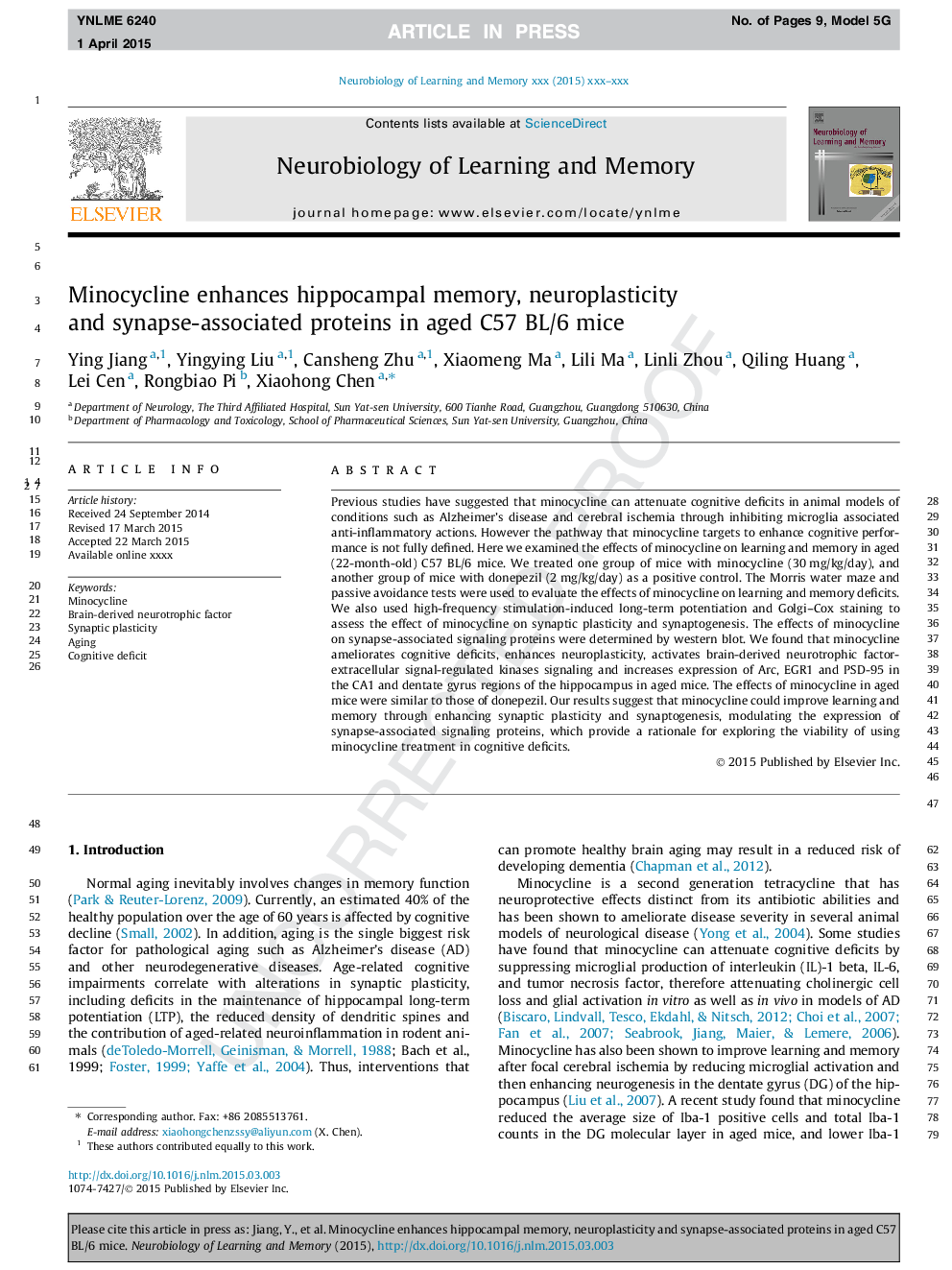| Article ID | Journal | Published Year | Pages | File Type |
|---|---|---|---|---|
| 7299459 | Neurobiology of Learning and Memory | 2015 | 9 Pages |
Abstract
Previous studies have suggested that minocycline can attenuate cognitive deficits in animal models of conditions such as Alzheimer's disease and cerebral ischemia through inhibiting microglia associated anti-inflammatory actions. However the pathway that minocycline targets to enhance cognitive performance is not fully defined. Here we examined the effects of minocycline on learning and memory in aged (22-month-old) C57 BL/6 mice. We treated one group of mice with minocycline (30Â mg/kg/day), and another group of mice with donepezil (2Â mg/kg/day) as a positive control. The Morris water maze and passive avoidance tests were used to evaluate the effects of minocycline on learning and memory deficits. We also used high-frequency stimulation-induced long-term potentiation and Golgi-Cox staining to assess the effect of minocycline on synaptic plasticity and synaptogenesis. The effects of minocycline on synapse-associated signaling proteins were determined by western blot. We found that minocycline ameliorates cognitive deficits, enhances neuroplasticity, activates brain-derived neurotrophic factor- extracellular signal-regulated kinases signaling and increases expression of Arc, EGR1 and PSD-95 in the CA1 and dentate gyrus regions of the hippocampus in aged mice. The effects of minocycline in aged mice were similar to those of donepezil. Our results suggest that minocycline could improve learning and memory through enhancing synaptic plasticity and synaptogenesis, modulating the expression of synapse-associated signaling proteins, which provide a rationale for exploring the viability of using minocycline treatment in cognitive deficits.
Related Topics
Life Sciences
Neuroscience
Behavioral Neuroscience
Authors
Ying Jiang, Yingying Liu, Cansheng Zhu, Xiaomeng Ma, Lili Ma, Linli Zhou, Qiling Huang, Lei Cen, Rongbiao Pi, Xiaohong Chen,
